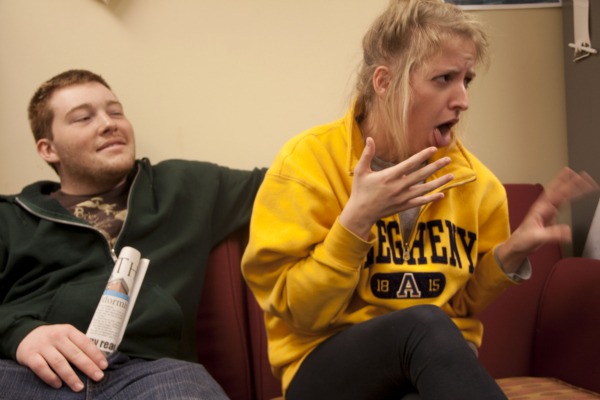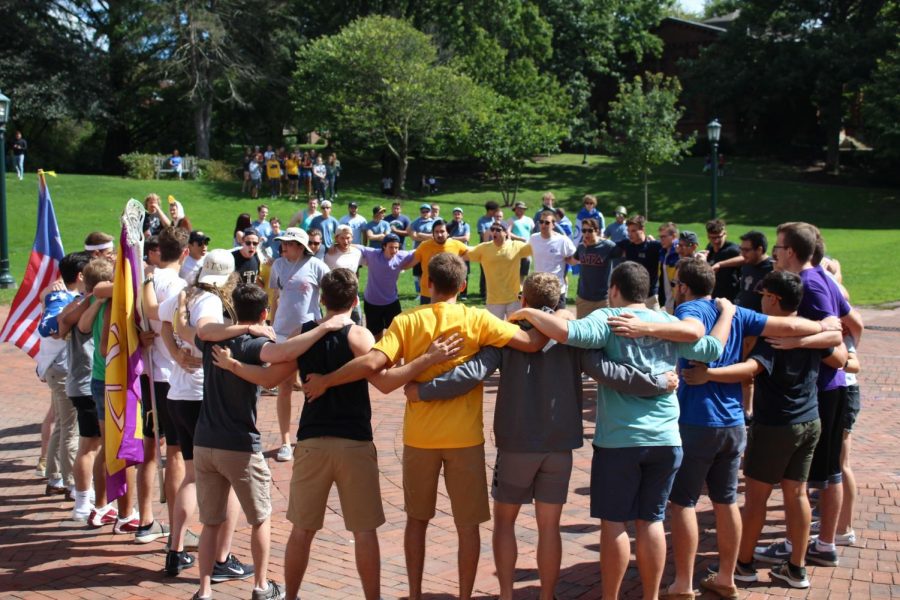This article was produced for The Compost, our April Fool’s issue. The contents are entirely fabricated. Any resemblance to real people or events is entirely coincidental.
By ALDA TODDS
alloftheodds@allofthetodds.todd
An epidemic of love crimes has spread across campus, and with dire health effects for the student body at large.
“There is a such thing as being too loving,” said Winslow Health Center employee, Nantucket Bucketts. “Slobbery people spread germs. And slobbery people making contact with other slobber spreads those germs. Just think of how many people the person you just slobbered with has slobbered on. Slobber, slobber, slobber.”
While person-to-person contact is a main carrying agent for many diseases, the mass infection of do-gooders on campus, sources say, makes the possibility for waterborne or airborne kind cooties all the more likely.
“Some kid held the door for me and I almost puked,” said one victim of the love crimes—acts also coined the “crimes against humanity” by those unaffected by its charm.
During the epidemic, students are urged not to violently make-out against the wall of frat houses, not to bat eyelashes and especially not to steal and/or break the hearts of their peers through harmless jokes, occasional texts and the nonchalant shoulder brush.
“These acts repulse me,” said Courtme Mediocrity, ’14. “I’ve only been on campus for one semester, and I am not used to this kind of love and kindness just given willy-nilly. I can’t be exposed to this grotesque display.”
The epidemic, since in the two weeks since its first registered case, has been coined an “Affection Infection.” Students overcome with the urge to hug a passerby, call their mother at home, distribute warm gooey brownies or make a sign for a neighbor with puffy paint are asked to stop by the health center immediately.
Though no cure is known, the nurse might give you throat lozenges, the smell of which is thought to ward off anyone from wanting to get near enough to your face to kiss it.
Some students, however, embrace the newfound sense of positivity on campus, thinking it less of a crime than acts of destruction or defamation.
“Since when is loving a crime,” said Venus Goddspree, ’12, who was diagnosed with Affection Infection last Tuesday and admits to over 12 acts of love since. “If kindness is a crime, I don’t want to be right.”
Goddspree and three others have been taken in for questioning.











